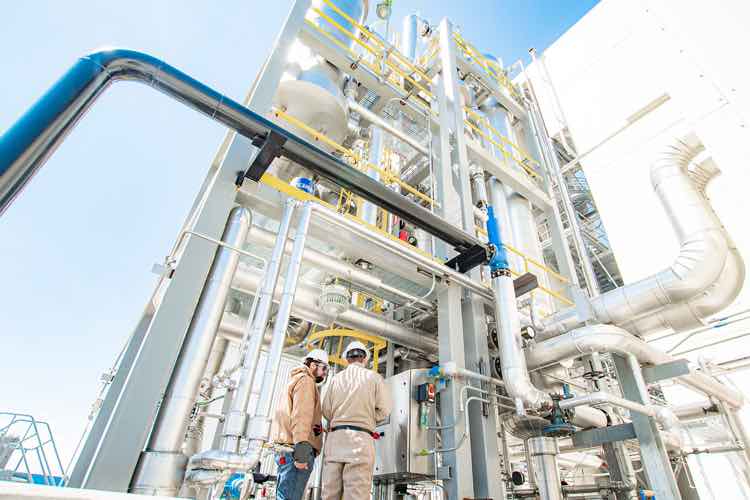BAINBRIDGE - Bioplastics company Danimer Scientific has received a US$400,000 grant from the United Soybean Board to expand the company’s evaluation of high-oleic soybean oil (HOSO) as a feedstock in the production of PHA biodegradable biopolymer.
The grant marks the continuation of Danimer’s collaboration with the United Soybean Board after the successful completion of a one-year project to develop a practical model for using HOSO as a feedstock in manufacturing Nodax, Danimer’s signature PHA, which is used to create a wide variety of products. The second year of the project will focus on scaling up the use of HOSO on a commercial level.
“HOSO is readily available material in the United States, likely making it a viable and cost-effective feedstock in the production of Nodax,” said Phil Van Trump, Chief Science and Technology Officer of Danimer. “We are pleased with the results of our first year collaborating with the United Soybean Board, and we thank them for their continued partnership in finding sustainable ways to meet rising demand for biodegradable products.”
High-oleic soybeans are grown exclusively in the U.S., and the oil produced from the crop provides increased functionality and improved shelf life for applications across the food and manufacturing industries.
“The first year of our research has produced excellent results that show HOSO is a viable feedstock in the manufacture of Nodax,” said Carol Leggett, PhD, Director of Microbiology at Danimer. “As we continue to expand the commercial production of Nodax, HOSO is expected to serve as a valuable tool to strengthen our supply chain and bottom line. The progress we’ve made to this point would not have been possible without the collaboration of the Omni Tech International, SmithBucklin, and the United Soybean Board and their farmer members.”
Earlier this year, Danimer announced plans to double the anticipated capacity of Nodax PHA from 125 million to 250 million finished pounds. Currently in the pre-construction engineering stage, the plant will now come online in two phases, with an initial three fermenters expected to be operational in mid-2023 and a second three in early 2024.
Nodax PHA was initially developed at Procter & Gamble and has many advantages as a new plastic, and not least for nonwoven products. It shows rapid biodegradation under both aerobic and anaerobic conditions and has polyolefin-like thermo-mechanical properties in terms of strength, flexibility, ductility, toughness and elasticity, and polyester-like physical properties in terms of compatibility with additives and other fibres in polymer blends
Properly compounded Nodax resins can be spun into fibres in a manner very similar to polypropylene, to make totally bio and marine degradable nonwoven products.
